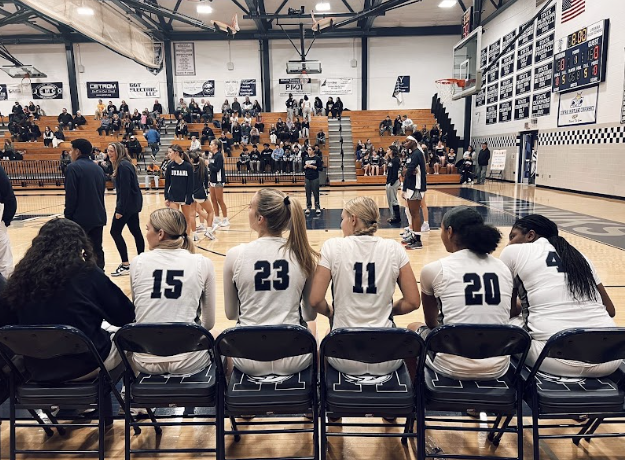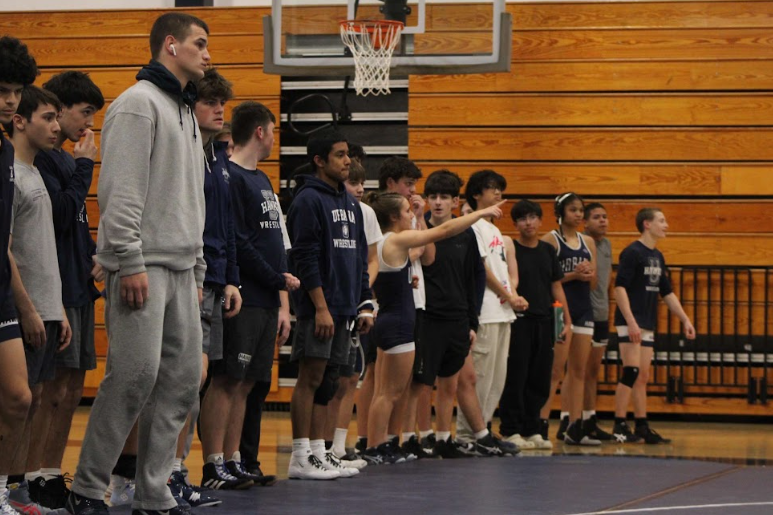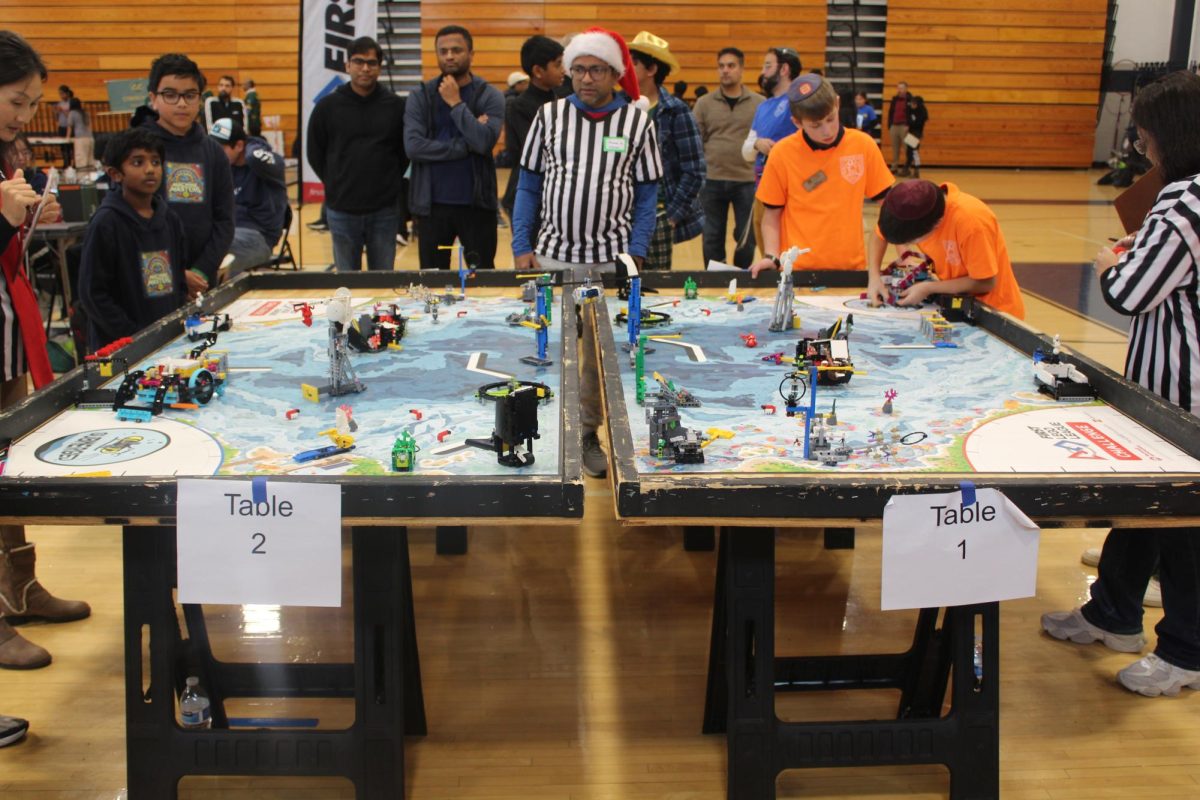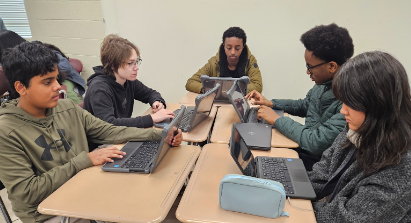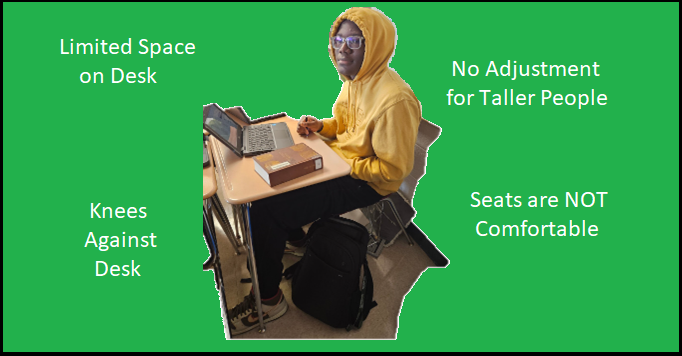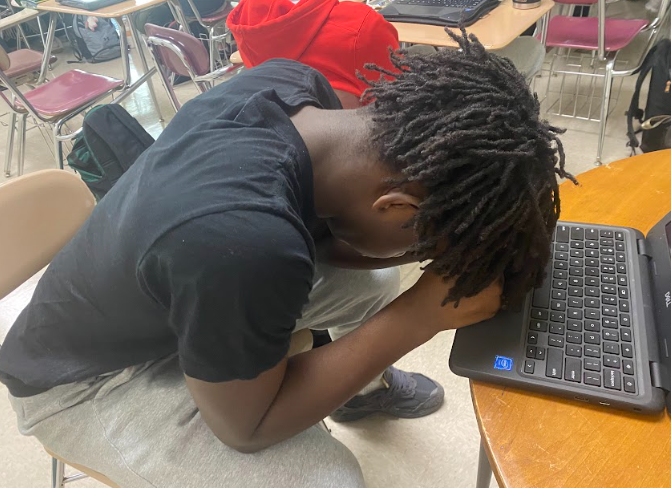As far back as 4000 to 3000 BC, ancient Egyptians would bet on things like dice, chariot racing, fencing, and board games. Ancient Romans would bet on the gladiators too. Nowadays people bet on things such as card games, “even the over”, or spread of a football game.
So…why do teenagers and young adults under the age of 21 engage in underage gambling?
Some individuals believe they will not earn enough money to support themselves without a job from gambling, but in reality, they most likely won’t make anything or they may end up losing what they have. Sources show that, “Of the more than 700,000 gamblers that we studied, 96% percent appeared to lose money to online gambling.”
In Maryland, sports betting was officially legalized in May of 2021, but only for individuals aged 21 and older. So how are so many teens in our school and across the state managing to bet on these games? And why is this a problem?
Risking Parent’s Information:
All high school students and most college students are under the legal betting age of 21 in Maryland, so these individuals have to get around the laws and regulations somehow.
The way these kids do this is by using their parents’ emails, social security numbers and information. This can be very harmful to the parents as their child may not know how to protect this information.
In Maryland, it is surprisingly easy to create a fake account or use your parents’ information to make an account, making sports betting practically accessible to any age.
All one person needs is a home address, date of birth, email address, telephone number, and a Social Security Number of someone over the age of 21.
This is detrimental to the younger generation as it gives them easy access to an activity that could potentially affect them for the rest of their lives.
How gambling at a young age is unhealthy
A gambling addiction is negative to anyone, creating a plethora of problems. In a younger person, these problems can be much more significant as their brains are not fully developed yet. This makes teens more susceptible to take bigger risks and most likely make dumber bets.
Gambling can also affect a person’s life outside of school because losing a bet can put a person in a terrible mood or situation. With some students betting during class, it can lead to a teen failing in their studies on top of a ruined mood.
Another student explains his struggles, “I actually gamble during school every day. I bet on ping pong on FanDuel, and I think it’s very detrimental to my life, but I’m winning money most of the time” he described with no regret.
Unfortunately, this is only the beginning of this addiction for these kids. The issue can always worsen if they are not stopped early in the journey.
According to the National Institution of Health, adolescents who gamble are more likely to abuse substances. Higher levels of alcohol usage, abusive tendencies and dependence are all traits that underage gamblers show.
Gambling isn’t just sports betting either. Many kids also will bet on card games like poker or even against their friends in a game of golf or another sport.
“I bet on the golf course, play cards, blackjack, poker, roll some dice every once in a while,” said another teen when asked what they bet on.
This type of gambling can lead to a serious addiction; the more you lose, the more you think about how you could make it all back with a double-or-nothing bet.
How many underage betters are there and why?
According to CBS News, the NCAA reports that nearly 70% of college students living on campus are underage betters.
This can include anything from a game of poker to betting on sports. The more that people engage in it, the more it grows among younger generations eager to participate.

The prevalence of underage gambling today can be attributed to the thrill it provides to kids who may not have as much time for a job or other ways to make money.
Kids love to bet because of the feeling it brings and the thrill of winning. So when they lose, it hurts twice as much.
“I was so excited, I won a lot of money for how much I had at the time. It just made me want to bet more and more,” replied a teen when asked about how they felt about their first bet.
Teen added, “Honestly, I think it has heart risks, as my heart starts beating very hard when a game is on the line. But mentally, I’m in a very bad mood after losing a bet.”
Another leading cause of the gambling surge are oblivious parents. Many parents are unaware of the dangers of gambling, often seeing it as “just another hobby” that their children pick up.
The main problem with this mindset is that gambling is extremely addictive.
A parent’s perspective
Urbana parent Frank Odame, shared his perspective. “Gambling is just overall terrible. It destroys kids’ dopamine receptors, makes them extremely addicted to throwing their money away, and is an overall waste of money.”
All in all, gambling is damaging to the mental health of teens and must be fought against.
So, how can the issue of underage gambling be addressed?
One great way to stop gambling in our youth is education.
Educating young children on the dangers of gambling can open their eyes to the effects it can have on their lives. Schools can hold workshops that explain the dangers and consequences of gambling, while emphasizing the addiction.
Parents should also be involved, learning how to spot signs of gambling behavior and discussing it openly with their kids, as many kids’ behaviors can noticeably change based on their bets.
Creating awareness campaigns through social media can reach teenagers where they spend their time, sharing stories and facts about the negative effects of gambling.
By working together, schools and parents can help prevent underage gambling and promote safe, responsible habits. On top of this, stricter enforcement of laws against underage gambling could also legally push awareness.
By requiring websites to use stronger age verification methods, such as verifying identity with official documents, minors can be kept out of betting sites.
Additionally, regulators can impose heavy fines on companies that fail to check ages properly. Limiting ads that target young people can also help reduce interest in sports betting among minors.
With these stricter laws in place, it becomes harder for young people to access online sports betting, helping to protect them from the risks and dangers associated with gambling at a young age.

Finally, providing support and resources for teens can also help those struggling with a gambling addiction fight it.
Hotlines, counseling services and online resources can help kids find support when they need it. Additionally, parents should be encouraged to talk with their children about gambling risks and healthy choices.
By creating a supportive environment and making resources available, underage gambling can be prevented, and young people can be guided to safer activities.
Addressing underage gambling requires a multi-headed approach involving education, stricter laws, and support resources.
By raising awareness about the dangers of gambling and implementing stronger age verification measures, communities can protect young people from the risks associated with gambling addiction.
Providing support services and encouraging open discussions between parents and children are essential in guiding teens toward healthier choices. Together, these efforts can help combat underage gambling and promote a safer, more responsible environment for youth.




